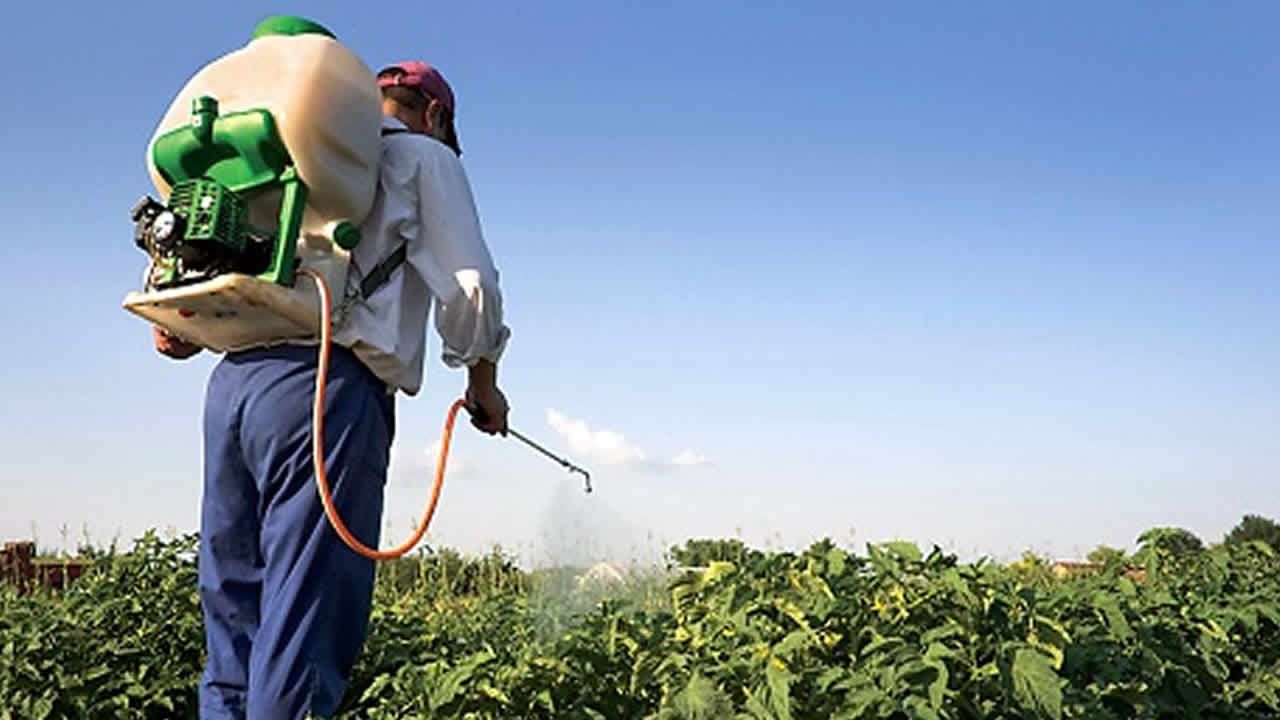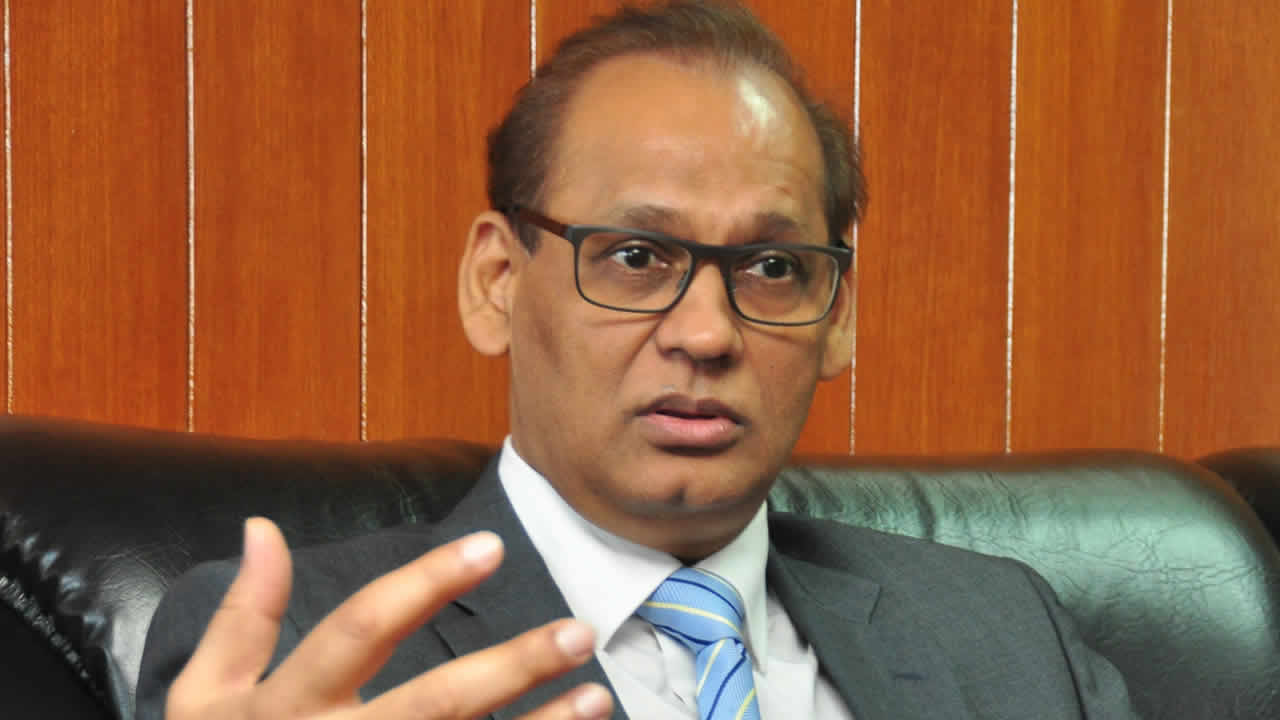
With new developments brought in the Agro-Industry sector, News on Sunday called upon the Minister Mahen Seeruttun to enlighten our readers on what is happening in various departments of his Ministry- Research, Bio-Farming, Export of fruits and flowers, Onion and Potato production, the return to Tea and Cane plantations and amendments to be brought in legislations governing the sector.
Publicité
Objectives of FAREI
The FAREI - Food and Agricultural Research and Extension Institute - has the mandate for Research and Advisory services in the agricultural sector in particular, vegetables, fruits, ornamentals, livestock production and related agro processing opportunities. The mission of the FAREI is to support and implement priority research, development and training programs and promote appropriate technologies for food security and enhance competitiveness and sustainability. The main objectives include introducing, developing and promoting novel technologies, coordinating, promoting and harmonizing priority research activities in agricultural production and agro forestry, promoting the interest of the youth, women and young agro entrepreneurs in agriculture and agribusiness activities.
The institute implements the strategic and adaptive research with the participation of stakeholders to meet the national objectives for improved farm productivity and income. It also seeks to ensure rapid transfer of technology for the benefit of growers, consumers and the environment.
The FAREI has a network of offices and sub-offices which are strategically situated across the island to enable farmers to access to advisory and other services.
Bio agriculture in Mauritius
Biological farming is a system of production that combines conventional and organic farming practices that emphasize on attainting naturally productive soils with high biological activity and that does not interfere with natural systems. Organic farming is a system that largely excludes the use of agrochemicals for crop production and relies on soil conservation measures, crop rotations, compost and manures, and biological pest control. It is based on minimal use of external farm inputs and ecological management practices that promotes and enhances biodiversity, and soil biological activity. Organic production methods are internationally regulated and legally enforced based on standard produced by the international federation of organic agriculture movements - IFOAM.
The government policy is to promote bio farming and production of bio foods in view of the awareness of the risks associated with the use of agrochemicals in local food production and minimises the use of chemical pesticides and fertilisers with the purpose of reducing the risk of environmental pollution and pesticide residues in locally produced food.
The FAREI has developed protocols for bio production and organic production and is encouraging farmers to embark in such sustainable agricultural production activities. The standards for bio food production have been prepared and farmers have been sensitised. Training of farmers on the Maurigap – Mauritius Good Agricultural Practices – standards is ongoing and a number of farmers have already been registered certified producers. The Ministry of Agro Industry has allocated state land at Britannia to encourage farmers to embark in organic farming. The farmers in this locality are being followed in their organic production activities. These producers will be followed and certified by a certifying body.
‘My Ministry is also working on a piece of legislation to ensure the proper and safe use of pesticide, control level of pesticide residue in agricultural produce, and ensure compliance with international norms with regards to use of pesticide,’ Minister Mahen Seerutun told News on Sunday.
With the coming into force of the Pesticide Use Bill, planters will have to abide to the instructions on the labels, dose to be applied, crops to be treated and safety interval, amongst others. Officers of the Ministry will systematically collect samples of harvested fruits and vegetables from growers’ fields for pesticides residue analysis. Notice will be issued for non-compliance. Growers will use pesticides judiciously and there will minimum to zero pesticide residues in the agricultural produce.
There is at present no legal framework in relation to organic agriculture in Mauritius. Our legislation does not cover at all the aspect of organic farming, the term “organic” not being defined in our current legislation. Although in practice, various agricultural products might be seen on the market with “organic” labels, these are more of a marketing tool than are actually products cultivated in conformity with organic farming principles. It is also in that respect that Government considers it an absolute necessity/urgency to put in place a legal framework to cater for these national and local issues.
It is in this respect that a new piece of legislation is currently being drafted under a technical cooperation programme entitled: Support to the Development of Organic Farming and Institutional Capacity Building in Mauritius, sponsored by the UN- FAO. This new piece of legislation is expected to cover all aspects of organic farming, so as to regularise this sector and recommendations will be made for an effective organic certification set up. National standards are also being prepared for organic crop production priority areas for organic livestock production. As a consequence of same, some legislations which pertain to the agricultural sector that might need to be amended.
Government is conscious of the abusive use of pesticides in agricultural production and the problem is being tackled in a holistic way. My Ministry is promoting bio-farming/organic farming, where minimal use of agro-chemicals in agricultural production is allowed.
As proposed by my Ministry, the Dangerous Chemicals Control Board is no more issuing import permits for the following pesticides for agricultural use: Acetamiprid 20% SP, Amitraz, Azocyclotin, Fenthion 50%, Fenazaquin 200g/I SC, Formetanate, Imidacloprid 20% SL, Profenofos 45-50 E.C, Trichlorfon 80%-95%, Methiocarb and Thiodicarb. As regards the withdrawal of additional toxic pesticides from the market, this is currently being worked out by my Ministry and a specific time frame for the total ban of these products from the market will be established.’

Research in Agriculture
‘Our objective is to produce high quality crops, vegetables, tropical fruits and processed food. Mauritius is self-sufficient in the production of fresh vegetables, tropical fruits, eggs, poultry and venison. Research and development at the FAREI have successfully introduced new production technologies and new varieties of crops. The production level of crops is very often saturated as evidenced from prices on the local market,’ the Minister added.
The number of varieties tested and released by the FAREI has enabled farmers to produce a larger variety of vegetables for the local market. The aim is to get a higher productivity with tolerance to the major pests and diseases and to meet consumer acceptance. More emphasis is being given to the value addition processes as an agribusiness. There is considerable scope to produce crops for agro processing, as the demand for such products on the local market is increasing for instance, processed potato, pre-cut vegetables, dehydrated products, minimally processed or ready to cook items. Techniques of crop productions have been reviewed and the use of appropriate machinery is recommended. This is supported by the incentive schemes, for the purchase of farm equipment, sheltered farming, to protect crops from the climate change hazards.’
Anthurium production
The need to recover the anthurium production status of Mauritius is more than ever our ambition. New varieties required for the export market are targeted for import. New technologies of anthurium production are under investigation.
The export of litchis from Mauritius was recently banned because of the presence of Sulphur residue. This problem has been successfully addressed by the FAREI and a technique of hydrocooling has been proposed. Training of litchis exporters is being programmed. Research conducted by the FAREI is participatory and is meant to address farmers’ immediate problems. Stakeholders meetings are regularly conducted to review constraints and address them. There are a number of production protocols developed and awaiting potential agro-entrepreneurs for business startups.
Self-sufficiency in potato and onions
Mauritius has a good background of potato production. The potato plantation season starts as from April to June for the first season and from July to August for the second season. The first season local potato reaches the local market as from July – August. The harvest extends until November -December for the second season. Local ware potato remains available until February-March from stored local potatoes. With the availability of additional storage capacity the potential to increase local potato production remains. The demand for ware potato averages 25,000 tons and is expected to reach 27,000 tons by 2020. The current annual production of 19,000 tons represents a self-sufficiency level of 76%. It should also be noted that the consumption of value added products in the form of frozen fries and potato chips is showing an increasing trend, hence the need to promote agro- processing of potatoes as a value addition agri-business. This would help to absorb the excess local seasonal production. There is a potential to increase the local potato production, however, the major constraint is the timely availability of suitable land in the second potato season.
The FAREI has recently introduced a new potato variety named Safari, which has shown a very good yield potential and met customer satisfaction. This variety is mainly recommended for the second season. The Spunta variety remains the most favorable variety to date. Two new varieties namely Barcelona and Mc Russet are currently undergoing large scale trials on farms.
Our onion requirements is largely met from local production and supplemented from imports. The current level of production meets around 40% of the total requirements. The annual consumption turns around 17,000 tons. Local production is currently from 282 ha of land. This sector faces a number of constraints among which labour scarcity and high cost of production are the main ones. Incentives from the government to planters aim at improving the productivity; schemes are available to encourage planters to purchase farm machinery to mechanise their farm operations, and advance on purchase of seeds. Local onion seeds production is being encouraged to reduce farmers’ dependence on expensive imported hybrid seeds.
Back to tea cultivation
With the increasing interest in the local black tea, demand overtook supply leading to a shortage of that commodity on the domestic market last year. Two years back, my Ministry, with a view to boost-up the industry, put-up the “re-vitalisation of the local tea sector” project.
One of the means to re-vitalise the sector was to increase the area under tea. It was thus decided to replant, as a first step, abandoned land in the former tea belt. Land at Grande Chartreuse, La Pipe, Rivière du Bois, Midlands, Beemanique and Jagreety were identified for tea cultivation.
A new tea nursery has been set-up at La Brasserie for the production of plantlets from cuttings and seedlings. Propagation by tissue culture is being fine-tuned and will be used to produce plantlets on a large scale.
Elite mother bushes of three cultivars (jats) have been rehabilitated at Petit Merlo and will be used to provide cuttings and some seeds. Clearing and land preparation, including excavation for main drains will start on about 25 arpents of land at Grande Chartreuse shortly. Prospective planters will be allocated plots of 2.00 arpents or more and will be provided with inputs and planting materials and also with banana plants. The banana plants will serve as wind break and at the same time generate some revenue to the planter. Technical assistance and advice will be provided all the way. Also as these lands has been lying fallow for some years, tea and other plants in the region may be produced using organic principles. It should also be noted that the tea plant is a slow starter and takes about five years to reach economic production.
Increase cane cultivation
In a previous report, LMC International May 2015 reviewed the viability price for the sugar industry, which in the Mid-Term review report of the MAAS in 2010 found as being Rs 15 000 per ton, and estimated now to be around Rs 16 000 per ton. As a rule of thumb, it could be argued that sugar price below Rs 16 000 per ton would not be sustainable in the long run.
However, it should be emphasized that in the determination of the viability price, a number of parameters have to be taken into consideration. The important ones are the price of inputs, the level of production, the scale of operation and the efficiency level of the producer.
From the foregoing, it is evident that the industry has a range of cost structures depending on inherent agro-climatic conditions, soil type, scale of operation, region of operation and overall efficiency of the planter.
The decision of whether to stay or exit from the cane production system in the event that the actual price is below the viability price would depend on the cost structure and potential yield level associated with the planter. A lower price than the viability price would still be profitable for planters while for some, it would not be viable to continue with cane production.
It is to be highlighted that during the recent past, planters’ revenue from the byproducts of cane has been enhanced for the 2016 crop.
Land abandonment is the result of a number of socio-economic factors and may have several negative impacts on the economy.
The Mauritius Cane Industry Authority – MCIA – has been vested with the responsibility to set up an Agricultural Land Management System – ALMS – in order to deal effectively with the cane land abandonment issue. Various strategies are being implemented on the one hand to bring back cane abandoned lands and on the other hand to prevent land abandonment.
The MCIA has, in June 2017, worked out a scheme (Cane Replantation Scheme) which consist of a cash grant of the order of Rs 71,000 per hectare payable to the land owners after they have successfully replanted their fields. To date land owners holding an extent of about 216 hectares have signed a contract with the MCIA for cane replantation. The cash grant, taken over a crop cycle of seven years, would indirectly represent additional revenue of about Rs 2,000 per ton of sugar.

Notre service WhatsApp. Vous êtes témoins d`un événement d`actualité ou d`une scène insolite? Envoyez-nous vos photos ou vidéos sur le 5 259 82 00 !





















